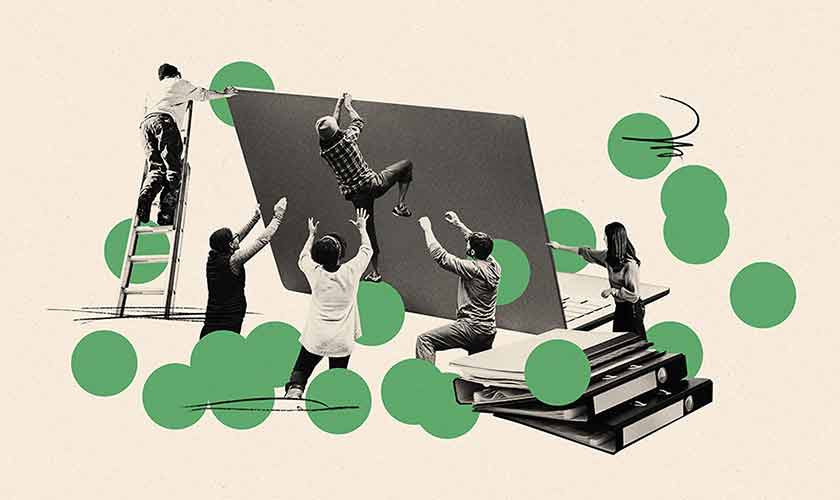Perhaps it is not just in the business and corporate world, but in every walk of life of all the people, across different cultures, the current era is, where the ruling dictum is, “what’s in it for me?”. Anything that falls outside the purview of such thought is given no attention. Interest in any matter is taken up by people, only when it promises to give them a direct return .
The adage ‘cut- throat competition’ conjures in my mind, humans, who are essentially members of the carnivorous world. Such are willing to do any bidding to achieve their own (mostly selfish) objectives. In this pursuit, if such men and women, who may be good professionals in their own right, find people who are or could potentially be impediments, will be hunted and taken care of. The obstacles are eliminated with total disregard to principles, scruples, rules, regulations and morality. The means, however lowly these may be are justified, for the end , by way of creating a narrative, where such actions are dressed and clothed, within the confines of the concept of the’ need of the hour’. Our country has often used the ‘doctrine of necessity’, as a pretext for justifying violation and abrogation of the sacred constitution.
Supervisors who crown themselves with abilities to undo others, make no bones about their quest. They consider letting others down as a measure of personal success. Such would undertake only those tasks that yield dividends to just their own selves. The good of ‘I’ prevails over the overall good of ‘We’. Policies and regulations are framed to serve just their interests. Readers would have noticed that Bills in the parliament that relate to ‘perks and privileges’ of the parliamentarians are passed and approved at lightning speed. These are legalised by legislation, without any debate. This attitude is a perfect reflection of working only for oneself.
The corporate world is not blessed with any angels, either. There are supervisors and managers who would frame policies that would serve them more than others. The outlook and view of such self- serving managers and supervisors is to undertake actions that give the ‘desired results’, now and here. They exhibit scant respect to the impact their narrow minded decision making would have upon the institution, in the future.
Senior management and line managers can be self centred. They are consistently preoccupied with their own self interest; the interest of others is put to the gallows. Many linguists argue and attempt to find the difference between being ‘selfish’ and being, ‘self-centered’; in my view and experience, they are synonymous — because if selfish managers demonstrate lack of concern for others, so do the self centred exhibit a love and passion for their own interests. Both of these negative traits induce the element of thinking that prioritises ‘self’ over ‘others’.
Selfish attitude or self centeredness contribute significantly towards creating gulf and fissures in the interpersonal relationships between colleagues, across the organisation. This behaviour doesn’t help in inducing a congenial working environment. Each to his/her own self is a catalytic belief system of thought that leads to the undoing of even the most formidable institutions. The self centred are usually manipulative, deceptive, deceitful, and in many cases are also abusive in action and words — that is to say, those managers afflicted with the personal ailment of not looking beyond their noses, which in such cases is usually longer than Pinocchio, are devoid and expunged of empathy.
If the organisation has a sizable number of selfish managers in its rank and file , and particularly in positions of authority, it can convert such institutions to be sociopathic. Ignoring the needs of others and only following the train of thought of pursuing only what is good for oneself is a psychological disorder of an extreme nature.
The toxicity of not looking beyond oneself generates a dehumanised office atmosphere. To counter this, senior management has to work assiduously towards inculcating a culture of care and concern, for all and between all, the employees of the organisation. Managers must be trained to think like the ‘farmers’ who sow the seeds, with complete willingness to let the future generations enjoy the harvest. The farmer is never assured to reap personally the benefits of the labour applied and put in today/now. However, what is certain is that if the efforts that are done now in a state of positive thinking, at least guarantee the following generations, to avail for themselves the dividends of such a belief system.
At the board level, the direction has to be set for the institution, through its vision and mission statements, that must enshrine the truth of the continuum of history. Institutions do not have a pre- determined life; they are usually created to remain in perpetual existence; unless the organisation is created to achieve a sole purpose. The fact that most whither away over time is a testimony to the lack of the ability to think beyond one’s limited time scale … The design of the organisation must be such that it caters beyond the life cycle of its constituents of today. Organisations that fall for short term success and dividends, will necessarily, blow and blot, themselves out in quick time. The goose that lays golden eggs cannot be sacrificed today in the hope that all future golden eggs can be had now…!
Board and senior management personnel that keep a keen eye towards framing policies that will ‘last’ beyond themselves are visionaries. They operate with a long term view, and shun the temptations of the limited and short term successes. An organisation that thinks ahead, and prepares itself for the unknown future, will have in place persons working in it, who would not be scared to share knowledge, skills and abilities, with the young Turks, who later would be expected to carry forward the torch.
The environment of an entity that has enlightened management that looks beyond its nose, will be one of cut- throat cooperation; competition will be towards inducing more cooperative activities. These organisations downplay internal competition, and give preference to outside competition in the marketplace.
The selfish attitude gets replaced with flexibility, adaption and pragmatism. Innovation takes roots in planning and execution, alongside the adoption of the latest tools of technology. The diverse competencies available are shared. The organisation chart is kept dynamic, to improve hierarchical structure — a flat org chart is generally preferred, because it tends to be less bureaucratic and more effective.
A manager/CEO who works towards building the organisation with the next fifty years in mind or more, will usually be a person, who would be at calm and peace, firstly with his/her own self and secondly with the surrounding environment. A stable leader, in thought and action, will always have a battery of followers, who themselves would also be aligned to a futuristic thinking for the organisation. There is nothing wrong to think for one’s self interest, but if it is pursued, to the peril and disadvantage of others, then it is certainly conduct unbecoming, for any leader/manager. The good in future must not be traded with the gains of now and here.
– The writer is a senior banker & freelance columnist.
https://www.thenews.com.pk/magazine/money-matters/1088763-look-beyond-yourself

